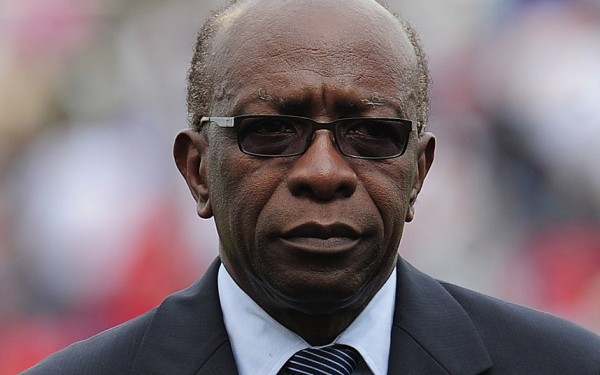
The controversy surrounding the 2022 World Cup in Qatar won’t die down, and through journalistic and federal investigation, documents linking payments of millions to Jack Warner, the former vice president of FIFA, by a company controlled by a former Qatari football official throw another suspicous, not to say inciminating light over the whole voting process.
Warner and his family, according to the documents, were paid over $2 million, with Warner personally paid $1.2 million shortly after the decision to take the World Cup to Qatar was successfully voted on. Almost $750,000 went directly to his sons, while $450,000 was paid to one of his employees.
The FBI are now investigating the Trinidad-based Mr Warner and his alleged links to the Qatari bid. His son, who lives in Miami, seems to be helping with the investigation as a witness.
The documents discolse that a company owned by Mohamed Bin Hammam, the Fifa executive member for Qatar seems to have paid Warner $1.2 million in 2011. A note from one of Mr Warner’s companies, Jamad, to Mr Bin Hammam’s firm, Kemco, requested $1.2 million in payment for work carried out between 2005 and 2010. The documents is dated December 15, 2010, coming two weeks after Qatar won the vote, saying the moey is payable to Mr. Jack Warner.
There’s a document suggesting the payments were made in order to offset legal and other expenses; another letter claims more than $1 million were paid for the exchange of professional services provided over the period 2005-2010. It has also been disclosed that at least one bank in the Cayman Islands initially refused to process the payment amid fears over the legality of the money transfer. The money was processed through a bank in New York, something the drew the attention of the FBI.
These payments need to be properly investigated. The World Cup is the most important event in football and we need to be confident that decisions have been made for the right reasons. There are lots of questions that still need to be answered.
The FBI aren’t the only ones investigating Warner’s accounts and overall alleged corruption. Michael Garcia, the joint chief investigator of Fifa’s ethics committee, has also been investigating the concerns around the bidding and voting process for the Qatar and also the 2018 World Cup in Russia, expected to deliver his report to the committee later this year.
The concerns are that members were not impartial when they cast their votes in December 2010 for the 2018 and 2022 World Cups. England, the strongest voice against what happened in the voting, received only two votes to host the 2018 World Cup and was eliminated after the first round. Concerns of corruption, bribery and the rest of the good stuff were raised even before the decision was made. Six weeks before the vote in Zurich, a World Cup official was caught in an undercover investigation agreeing to sell his vote to one of England’s rivals. A second member of the same committee was recorded asking for £1.5 million for a sports academy. Both officials were suspended, meaning that 22 people voted instead of the usual 24.
In June 2011, Warner resigned from his position at FIFA after he was accused of facilitating bribes to members of the Caribbean football union on behalf of Mohamed Bin Hammam, trying to overthrow Sepp Blatter as FIFA president. Mr Warner was caught on tape apparently urging fellow Fifa officials to accept cash gifts from Mr Bin Hammam.